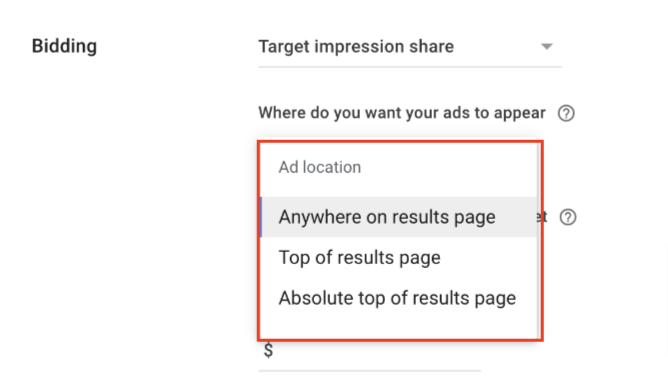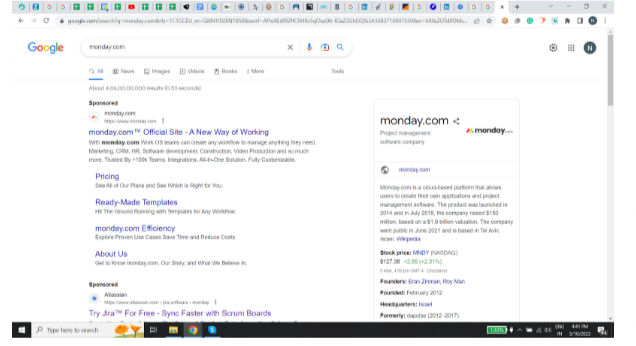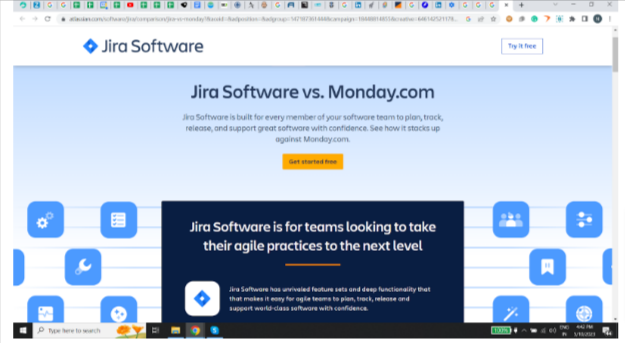Picture this scenario; it’s a busy Monday morning; your espresso is just how you like it, hot and piping. You unhinge your laptop, plug in some good music, and type in your brand keywords.
Lo and behold! Instead of seeing your company’s ad at the top, you see your biggest competitor’s ad flashing loud and clear at the top position! Does it feel like your worst nightmare come true?
Cease to fret; we have you covered.
In the following text, we will discuss tactics to implement real-time damage control measures, explore legalities across different search engines, and discuss the pros and cons of bidding on competitor brand names. Let’s begin with the basics.
Why would competitors bid on my brand keywords?
Well, simply put, it’s all about the money, honey! The idea behind bidding on competitor keywords is to redirect traffic to their website that offers a similar product or service.
Is it legal to bid on competitor keywords, and what to do when a competitor bids on your brand’s keywords?
The answer may not be to your liking, but it will probably have your competitors rubbing their hands in glee.
Yes, as of June 4, 2019, marketers will be allowed to bid on rival trademarks in about two hundred countries to reflect in “sponsored search” ads on Google.
Sounds disheartening? There are certain things that you need to look out for, though, before you get all heated up and in the mood for some dispute.
- For instance, if your brand name is Sunny Side Up Egg Treats, and if a competitor bids on egg treats and ranks on top, they are probably not bidding on the “Sunny Side Up” part.
- If they are deploying your brand’s trademarked keyword in their ad copy deceptively, in that case, you can drop a trademark complaint at Google here and for Bing users here.
But there are certain cases where brand competitors have successfully bid on competitor keywords by deploying a smooth combination of high-quality scores, namely, keyword relevance + ad copy + landing page relevance. Yes, they come up with comparison pages wherein they add your brand keywords and offer a detailed USP comparison of relevant brands in the market. You see it!
What can you do to turn the tables in your favor?
Here are some strategies you can consider deploying when competitors buy your brand keywords.
1. Bid on your own brand name:
That way, even if a competitor decides to bid on your brand keywords to take away traffic, yours would be in the scenario too.
If you didn’t already place bids on your keywords, your competitor probably saw an opportunity, even if at higher PPCs (pay per clicks), to divert link juice to their websites. This might be your wake-up call to step in and buy your own brand keywords.
Another benefit of this is that you can play around with the ad copies and carry out A/B testing;
- Does adding a CTA in your ad copy boost click-throughs?
- Or does the campaign with offers and discounts reel in more clicks?
- Is that free same-day shipping declaration helping you grab more eyeballs?
This is how you can turn adversity into opportunity and set the ball rolling in your favor.
2. Get in touch with the competitor’s business and call a truce:
The business will probably not take down the ads once you speak with them, and it is a valid thought. However, taking the high road before you explore legalities makes sense.
In some cases, if an agency runs its ad campaigns, the business might not be aware of the cards being played out and may be willing to rectify the situation.
3. Try experimenting with target impression share:
An automated bidding strategy; can help you target your ad placement in one of the three different areas of the SERPs (Search Engine Result Pages.)
- On the absolute top of the SERPs
- Anywhere on the page
- Toward the top of the page
This is how you can do that, Settings > Bidding > Change Bidding Strategy > Target Impression share.

You can alter the following settings;
- The location of your ads on SERPs: We recommend running a budget-to-performance survey as you experiment with different ad placements.
- Percent (%) impressions share to target: When brand keywords are concerned, we recommend going for a hundred percent share to outperform competitors.
- Max CPC you are willing to pay: If budget ain’t a concern, then the sky’s the limit when it comes to bidding on your brand keywords. However, you can enter your values if you’d rather stick to a budget.
Please note that any changes in the strategy will need at least a week to show results. So keep that window in mind before you make any further alterations.
4. Consider filing a trademark complaint with the search engines:
Suppose you own the trademark on your brand name. In that case, Google Ads can help you curb trademark infringements by competitors; however, with Bing, the territories on the longevity of trademark complaints are unclear.
To set the record straight, filing trademark complaints will not eliminate all encroachments, but it should help prevent a certain number!
Here’s what you should keep handy before filing a trademark complaint;
- Attest the email address of the trademark owner along with the complaint, this will help eliminate certain verification procedures while processing the claim.
- Gather all supporting documents such as screenshots of the ad(s) being contested, the name of the trademark owner, a complete list of trademarked phrases/terms, the trademark registration number and the country, and your agency’s Bing/Google account manager.
Should you bid on competitors’ brand keywords?
While the jury stands divided on this one, the ultimate decision remains yours to make.
Before you consider bidding on competitor keywords, we suggest that you employ tools such as Semrush to understand the amount of traffic their keywords are generating; you may then invest smartly.
The CPCs on competitor brand keywords might be higher, but the benefits may outweigh the cost as you will end up attracting traffic to your site and that might force the competitor to stop bidding on your keywords.
However, you must integrate the branded keywords cleverly in your ad copy or you might end up in the deep side of the pool as you navigate murky waters.
Pros & cons of bidding on competitor names

If you look at the attached screenshot you see Jira bidding cleverly on Monday.com. This is how they have cleverly executed this game.

Pro tip: The landing page makes a fair game on the brand’s keyword by offering a comparison and therefore the quality scores aren’t affected.
One of the pros of bidding on your brand’s competitors’ keywords is enhanced brand awareness. If you are new in a field of seasoned players, you can make this work to your advantage.
Another pro is the lesser competitiveness of such keywords. With the high CPCs on brand keywords, not many are willing to place bids on them. So you gotta roll the dice and take your chances!
You also get to showcase your products or services whenever someone searches with a similar intent in mind for a competitor keyword. Whoever is in the market for your competitor’s services, is also your potential client. This might help you stay one step ahead of other brands in the same genre.
However, every coin has two sides and the cons are equipollent in this case too.
This might start a really expensive war with the other brand. Not to mention the lower click-throughs on your brand keywords, because someone who has typed in the competitor’s keyword might have already zeroed in on buying from them.
The pros and cons are equally weighted and it’s ultimately your call.
Summary
If you haven’t already trademarked your brand keywords and phrases, take this as a sign and hurry! Protection is always better than cure, so staying aware of the market scenario helps.


Naina Sandhir - Content Writer
Latest posts by Naina Sandhir - Content Writer (see all)
Different Ways to Combine Social Media and PPC For More Conversions
The Marketers Guide To A Comprehensive Understanding of E-E-A-T in SEO